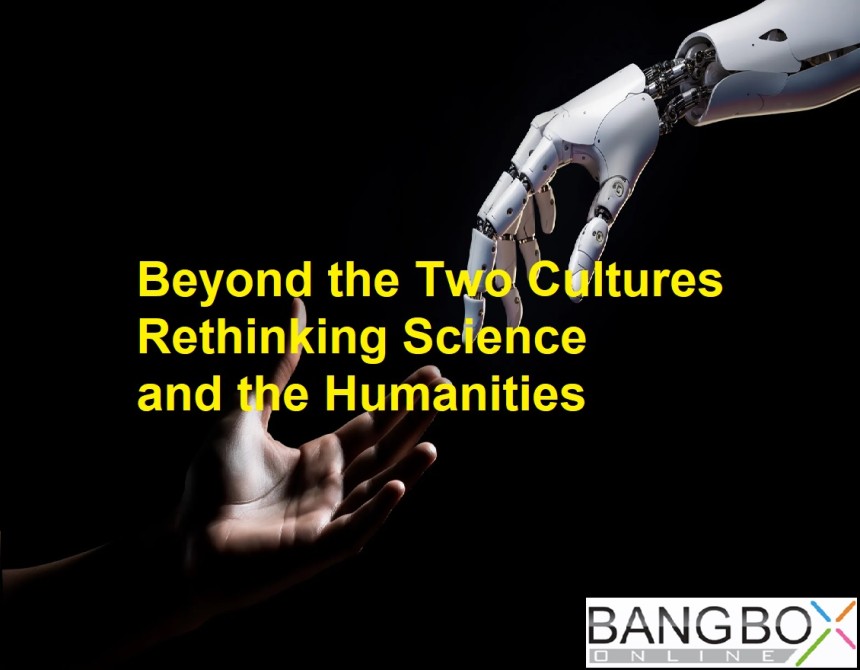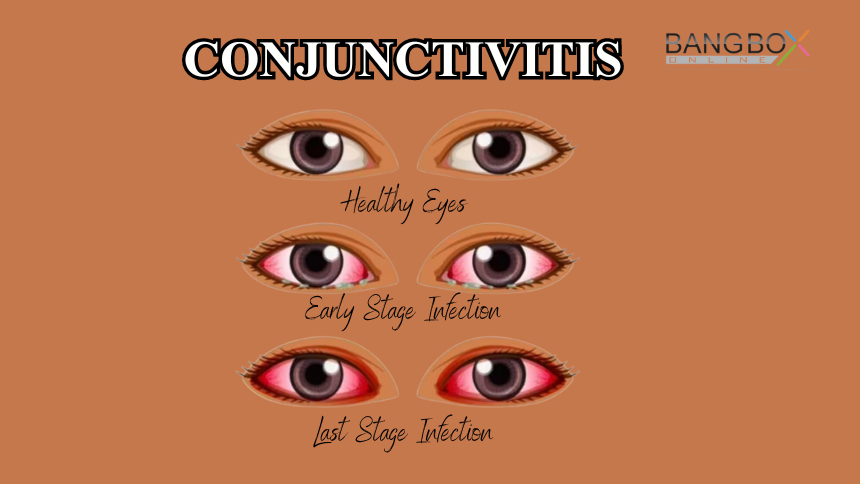
Beyond the Two Cultures: Rethinking Science and the Humanities
Our World today is an advanced era as compared to just a 100 years ago. Today artists, or humanists, and scientists form two distinctive cultures and so cannot understand nor talk with each other. Amid a polarised debate, science and art seem further apart than ever. It's vital to keep talking and bridge the divide. This article appeared in Big Think and this is an Urdu translation of the same for the readers of Bangbox Online.
سائنس اور ہیومینٹیز کی ثقافتوں سے پرے ازسرِنو غور کرنا ہوگا
کلیدی نقطے
تہذیب کو بچانے کے لیے باہمی تعاون کی ضرورت ہے۔
سائنس اور ہیومینٹیز کے درمیان بہت بڑا تعلق ہے۔ ہمارے حقیقی دنیا کے بیشتر مسائل کے حل کے لیے جاننے کے دونوں طریقوں کی ضرورت ہے۔ دو ثقافتی تقسیم سے آگے بڑھنا ہمارے تہذیبی منصوبے کو یقینی بنانے کے لیے ایک ضروری قدم ہے۔
پچھلے پانچ سالوں سے، میں نے ڈارٹ ماؤتھ میں انسٹی ٹیوٹ فار کراس ڈسپلنری انگیجمنٹ چلایا، جو جان ٹیمپلٹن فاؤنڈیشن کے زیر اہتمام ایک قدم ہے۔ ہمارا مشن سائنس دانوں اور انسانیت پسندوں کو اکٹھا کرنے کے طریقے تلاش کرنا ہے، اکثر عوامی مقامات پر یا – کووڈ -۱۹ کے بعد — آن لائن، ایسے سوالات پر تبادلہ خیال کرنا جو کسی ایک نظم و ضبط کی تنگ حدود سے تجاوز کرتے ہیں۔
یہ پتہ چلتا ہے کہ یہ سوالات ہمارے اجتماعی مستقبل کے بارے میں انتہائی ضروری اور فوری گفتگو کے تقاضہ ہیں۔ اگرچہ ہمیں درپیش مسائل کی پیچیدگی تقاضہ کرتی ہے کہ ہم علم کے مختلف طریقوں کو کثیر ثقافتی انضمام کا اہتمسم کریں۔ لیکن ہاتھ میں موجود اوزار بہت کم اور زیادہ تر غیر موثر ہیں۔ ہمیں دوبارہ سوچنے اور سیکھنے کی ضرورت ہے کہ کس طرح متصادم ثقافتوں میں نتیجہ خیز تعاون کرنا ہے۔
ہائپر اسپیشلائزیشن کا خطرہ
علم کی دھماکہ خیز توسیع جو 1800 کی دہائی کے وسط میں شروع ہوئی تھی، اکیڈمی کے اندر اور باہر ہائپر اسپیشلائزیشن کا باعث بنی۔ یہاں تک کہ ایک نظم و ضبط کے اندر، فلسفہ یا طبیعیات، پیشہ ور افراد اکثر ایک دوسرے کو نہیں سمجھتے۔ جیسا کہ میں نے یہاں پہلے لکھا تھا، "علم کی یہ تقسیم علم کے اندر اور باہر ہمارے دور کی پہچان ہے، دو ثقافتوں کے تصادم کی ایک وسعت ہے جو ماہر طبیعیات اور ناول نگار سی پی سنو نے 1959 میں اپنے کیمبرج کے ساتھیوں کو نصیحت کی۔ نقصان واضح، فکری اور سماجی طور پر ہے۔ علم تخفیف پسندی کا ماہر نہیں ہے۔ یقینی طور پر، ایک ماہر اپنے منتخب کردہ شعبے میں پیشرفت کرے گا، لیکن ہائپر اسپیشلائزیشن کا ٹنل ویژن سیاق وسباق کو نقصان پہنچاتا ہے: آپ یہ کام نہیں جانتے کہ یہ بڑی تصویر میں کیسے فٹ بیٹھتا ہے یا، زیادہ تشویشناک بات یہ ہے کہ اس کا معاشرے پر کیا اثر پڑ سکتا ہے؟
بہت سے وجودی خطرات جن کا ہمیں آج سامنا ہے — آرٹیفیشل انٹیلیجنس اور افرادی قوت پر اس کے اثرات، ڈیٹا مائننگ اور شیئرنگ کی وجہ سے رازداری کا خطرناک نقصان، سائبر وارفیئر کا خطرہ، بائیو وارفیئر کا خطرہ، گلوبل وارمنگ کا خطرہ، جوہری دہشت گردی کا خطرہ۔ , جینیاتی انجینئرنگ کی ترقی سے ہماری انسانیت کے لیے خطرہ — جدید ٹیکنالوجی تک رسائی کی بڑھتی ہوئی آسانی اور ہم سب کے اپنے گیجٹس پر ناقابل واپسی انحصار کے نتائج ہیں۔ تکنیکی جدت سے کوئی واپسی نہیں۔ ہم جدید ترین "سمارٹ" فون، ۵ کے ٹی وی، اور وی آر چشمیں حاصل کرنا چاہتے ہیں کیونکہ یہ خواہشات اور سماجی جگہوں کی چیزیں ہیں۔
کیا ہم جینیاتی انقلاب کے لیے تیار ہیں؟
جب وقت آئےگا، اور ماہرین کا خیال ہے کہ یہ ہماری توقع سے جلد آنے والا ہے تو کیا ہم اس کے لیے تیار ہیں؟ انسانی جینوم کے ساتھ جینیاتی مداخلت سماجی عدم مساوات کو ایک بے مثال سطح تک لے جا سکتی ہے جس میں نہ صرف دولت کی تقسیم میں فرق ہوگا بلکہ آپ کس قسم کے وجود میں آتے ہیں اور جو اقتدار کو برقرار رکھے گا۔ یہ اس قسم کا ڈراؤنا خواب ہے جس کے بارے میں نوبل انعام یافتہ ماہر جینیات جینیفر ڈوڈنا نے ایک حالیہ بگ تھنک ویڈیو میں بات کی۔
ان پیشرفت کے مرکز میں سائنس کی دوہری استعمال کی نوعیت، اس کی روشنی اور سایہ خود ہے۔ زیادہ تر تکنیکی ترقیوں کو شاندار پیشرفت کے طور پر سمجھا اور بیچا جاتا ہے جو یا تو انسانی مصائب کو کم کرے گی یا لوگوں کی بڑھتی ہوئی تعداد کے لیے سکون اور رسائی کی بڑھتی ہوئی سطحیں لائے گی۔ بیماریوں کا علاج وہی ہے جس نے ڈوڈنا اور انسٹی ٹیوٹ فار کراس ڈسپلنری انگیجمنٹ کی تحقیق میں شامل دیگر سائنسدانوں کو تحریک دی۔ لیکن اس کے ساتھ ہی انسانیت کے جینیاتی میک اپ کو ان طریقوں سے تبدیل کرنے کی صلاحیت بھی آگئی جسے دوبارہ اچھے یا برے مقاصد کے لیے استعمال کیا جا سکتا ہے۔
یہ سائنس فائی فلم کا پلاٹ نہیں ہے۔ بائیو ہیکنگ اور نیوکلیئر ہیکنگ کے درمیان بنیادی فرق پیمانے کا ایک ہے۔ جوہری ٹیکنالوجی کے لیے صنعتی سطح کے بنیادی ڈھانچے کی ضرورت ہوتی ہے، جو کہ بہت مہنگا اور جستجو طلب ہے۔ یہی وجہ ہے کہ جوہری تحقیق اور اس کے تکنیکی نفاذ کو زیادہ تر حکومتوں کے حوالے کر دیا گیا ہے۔ بائیو ہیکنگ کسی کے گھر کے پچھواڑے کے گیراج میں ایسے سامان کے ساتھ کی جا سکتی ہے جو زیادہ مہنگا نہیں ہے۔ نیٹ فلیکس دستاویزی سیریز غیر قدرتی انتخاب اس نقطہ کو خوفناک طریقوں سے گھر لاتی ہے۔ بنیادی مسئلہ یہ ہے کہ: ایک بار جن بوتل سے باہر ہو جائے تو کسی بھی قسم کے کنٹرول کو نافذ کرنا عملی طور پر ناممکن ہے۔ جن کو دوبارا بوتل میں بند نہیں کیا جاسکتا۔
تہذیب کو بچانے کے لیے باہمی تعاون کی ضرورت ہے۔
پھر، کیا کیا جا سکتا ہے؟ اس طرح کے تکنیکی چیلنجز کسی واحد نظم و ضبط کی پہنچ سے باہر ہیں۔ مثال کے طور پر، انسٹی ٹیوٹ فار کراس ڈسپلنری انگیجمنٹ جینیات کے اندر ایک ایجاد ہو سکتا ہے، لیکن اس کا اثر بہت وسیع ہے، جو نگرانی اور اخلاقی تحفظات کا مطالبہ کرتا ہے جو ہماری موجودہ حقیقت سے بہت دور ہیں۔ گلوبل وارمنگ، بے تحاشا ماحولیاتی تباہی، اور فضائی آلودگی/ گرین ہاؤس گیسوں کے اخراج کی بڑھتی ہوئی سطحوں کے ساتھ بھی ایسا ہی ہے جو کہ تیزی سے ابھر رہے ہیں جب ہم وبائی امراض کے بعد کے دور میں رینگ رہے ہیں۔ اپنی 18 ماہ کی تنہائی سے سبق سیکھنے کے بجائے — کہ ہم فطرت کی طاقتوں کے لیے کمزور ہیں، کہ ہم ایک دوسرے پر منحصر ہیں اور عالمی سطح پر ناقابل واپسی طریقوں سے جڑے ہوئے ہیں، کہ ہمارا انفرادی انتخاب خود کی ذاتی سطح سے بہت زیادہ اجتماعیت کو متاثر کرتا ہے — ایسا لگتا ہے کہ ہم استثنیٰ کے بغیر اپنی جمع شدہ خواہشات کے حصول میں خود تباہی پر تلے ہوئے ہیں۔
انسٹی ٹیوٹ فار کراس ڈسپلنری انگیجمنٹ کے ساتھ ہمارے تجربے کے تجربے نے ہمیں کچھ اسباق سکھائے ہیں کہ ہمیں امید ہے کہ معاشرے کے باقی حصوں میں بھی اس سے فائدہ اٹھایا جا سکتا ہے: (1) کہ اس قسم کی سائنس اور انسانیت پر بین الضابطہ گفتگو میں عوامی دلچسپی بہت زیادہ ہے۔ (2) کہ اکیڈمی میں اس بات پر اتفاق رائے بڑھ رہا ہے کہ اس بات چیت کی فوری اور اشد ضرورت ہے، جیسا کہ دوسرے اسکولوں میں اسی طرح کے ادارے ابھرنا ہونگے۔ (3) کہ ایک کھلے باہمی تبادلے کے کامیاب ہونے کے لیے، لوگوں کے ساتھ ایک مشترکہ زبان قائم کرنے کی ضرورت ہے جو ایک دوسرے سے بات کرتے ہیں نہ کہ ایک دوسرے سے خلاف۔ (4) وہ یونیورسٹی اور ہائی اسکول کے نصاب کو مزید ایسے کورسز بنانے کی کوشش کرنی چاہیے جہاں اس قسم کے بین الضابطہ تبادلے کا معمول ہو نہ کہ استثناء؛ (5) کہ اس گفتگو کو معاشرے کے تمام شعبوں تک لے جانے کی ضرورت ہے نہ کہ دانشوری کے الگ تھلگ استھان یا سائلو میں۔
دو ثقافتی تقسیم سے آگے بڑھنا محض ایک دلچسپ فکری مشق نہیں ہے۔ یہ، جیسا کہ انسانیت اپنے فیصلے اور غیر یقینی صورتحال سے لڑ رہی ہے، یہ ہمارے تہذیبی منصوبے کو یقینی بنانے کے لیے ایک ضروری قدم ہے۔
[ یہاں یہ سمجھنا بہت ضروری ہے کہ اہلِ مغرب نے کئی سو سال قبل خود کو مذہب سے دور کر کے ایک بند گلی میں جا پہنچایا ہے۔ جس انسانیت یا ہیمنیٹیز کی بات کی جاتی ہے اس کا راز مذہب میں ہے اور ان تعلیمات میں ہے جس کا منبع خدائے لم یزل؛ یکتا و تنہا اللہ سبحان تعالی ہیں جس کے ماننے والی یہودی ہیں، عیسائی ہیں اور مسلمان بھی ہیں۔ اوپر کے مضمون میں جن دو تہذیبوں کا ذکر کیا ہے اس کی درست تشریح اور تعبیر انسان کے لیے مذہب کے ساتھ ساتھ جدید دور کی ترقی کا نباہ ہے۔ جو انسانی زندگی کو ہر زاویے پر نظر رکھے اور حل تجویز کرے]۔۔۔
https://bigthink.com/13-8/two-cultures-rethinking-science-humanities/
Beyond the Two Cultures: Rethinking Science and the Humanities
Key Takeaways
Cross-disciplinary cooperation is needed to save civilization.
There is a great disconnect between the sciences and the humanities. Solutions to most of our real-world problems need both ways of knowing. Moving beyond the two-culture divide is an essential step to ensure our project of civilization.
For the past five years, I ran the Institute for Cross-Disciplinary Engagement at Dartmouth, an initiative sponsored by the John Templeton Foundation. Our mission has been to find ways to bring scientists and humanists together, often in public venues or — after Covid-19 — online, to discuss questions that transcend the narrow confines of a single discipline.
It turns out that these questions are at the very center of the much needed and urgent conversation about our collective future. While the complexity of the problems we face asks for a multi-cultural integration of different ways of knowing, the tools at hand are scarce and mostly ineffective. We need to rethink and learn how to collaborate productively across disciplinary cultures.
The danger of hyper-specialization
The explosive expansion of knowledge that started in the mid 1800s led to hyper-specialization inside and outside academia. Even within a single discipline, say philosophy or physics, professionals often don’t understand one another. As I wrote here before, “This fragmentation of knowledge inside and outside of academia is the hallmark of our times, an amplification of the clash of the Two Cultures that physicist and novelist C.P. Snow admonished his Cambridge colleagues in 1959.” The loss is palpable, intellectually and socially. Knowledge is not adept to reductionism. Sure, a specialist will make progress in her chosen field, but the tunnel vision of hyper-specialization creates a loss of context: you do the work not knowing how it fits into the bigger picture or, more alarmingly, how it may impact society.
Many of the existential risks we face today — AI and its impact on the workforce, the dangerous loss of privacy due to data mining and sharing, the threat of cyberwarfare, the threat of biowarfare, the threat of global warming, the threat of nuclear terrorism, the threat to our humanity by the development of genetic engineering — are consequences of the growing ease of access to cutting-edge technologies and the irreversible dependence we all have on our gadgets. Technological innovation is seductive: we want to have the latest “smart” phone, 5k TV, and VR goggles because they are objects of desire and social placement.
Are we ready for the genetic revolution?
When the time comes, and experts believe it is coming sooner than we expect or are prepared for, genetic meddling with the human genome may drive social inequality to an unprecedented level with not just differences in wealth distribution but in what kind of being you become and who retains power. This is the kind of nightmare that Nobel Prize-winning geneticist Jennifer Doudna talked about in a recent Big Think video.
Many of the existential risks we face today — AI and its impact on the workforce, the dangerous loss of privacy due to data mining and sharing, the threat of cyberwarfare, the threat of biowarfare, the threat of global warming, the threat of nuclear terrorism, the threat to our humanity by the development of genetic engineering — are consequences of the growing ease of access to cutting-edge technologies and the irreversible dependence we all have on our gadgets. Technological innovation is seductive: we want to have the latest “smart” phone, 5k TV, and VR goggles because they are objects of desire and social placement.
At the heart of these advances is the dual-use nature of science, its light and shadow selves. Most technological developments are perceived and sold as spectacular advances that will either alleviate human suffering or bring increasing levels of comfort and accessibility to a growing number of people. Curing diseases is what motivated Doudna and other scientists involved with CRISPR research. But with that also came the potential for altering the genetic makeup of humanity in ways that, again, can be used for good or evil purposes.
This is not a sci-fi movie plot. The main difference between biohacking and nuclear hacking is one of scale. Nuclear technologies require industrial-level infrastructure, which is very costly and demanding. This is why nuclear research and its technological implementation have been mostly relegated to governments. Biohacking can be done in someone’s backyard garage with equipment that is not very costly. The Netflix documentary series Unnatural Selection brings this point home in terrifying ways. The essential problem is this: once the genie is out of the bottle, it is virtually impossible to enforce any kind of control. The genie will not be pushed back in.
Cross-disciplinary cooperation is needed to save civilization
What, then, can be done? Such technological challenges go beyond the reach of a single discipline. CRISPR, for example, may be an invention within genetics, but its impact is vast, asking for oversight and ethical safeguards that are far from our current reality. The same with global warming, rampant environmental destruction, and growing levels of air pollution/greenhouse gas emissions that are fast emerging as we crawl into a post-pandemic era. Instead of learning the lessons from our 18 months of seclusion — that we are fragile to nature’s powers, that we are co-dependent and globally linked in irreversible ways, that our individual choices affect many more than ourselves — we seem to be bent on decompressing our accumulated urges with impunity.
The experience from our experiment with the Institute for Cross-Disciplinary Engagement has taught us a few lessons that we hope can be extrapolated to the rest of society: (1) that there is huge public interest in this kind of cross-disciplinary conversation between the sciences and the humanities; (2) that there is growing consensus in academia that this conversation is needed and urgent, as similar institutes emerge in other schools; (3) that in order for an open cross-disciplinary exchange to be successful, a common language needs to be established with people talking to each other and not past each other; (4) that university and high school curricula should strive to create more courses where this sort of cross-disciplinary exchange is the norm and not the exception; (5) that this conversation needs to be taken to all sectors of society and not kept within isolated silos of intellectualism.
Moving beyond the two-culture divide is not simply an interesting intellectual exercise; it is, as humanity wrestles with its own indecisions and uncertainties, an essential step to ensure our project of civilization.

Tension Releasing Exercises: Offered by Expert Myopractors in Mesa
Myopractor in Mesa provides a natural and holistic approach to addressing various health c...



